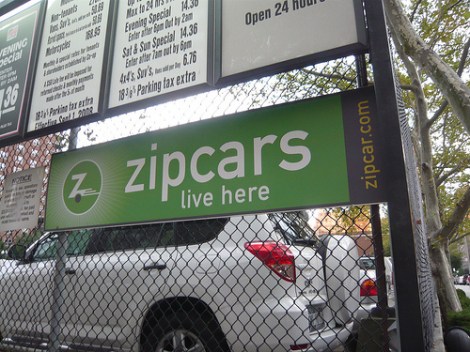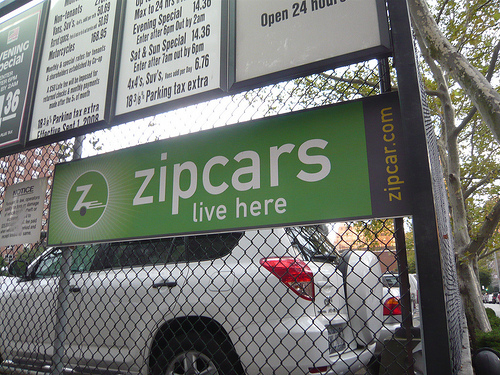In 2011, Zipcar, the world’s largest car-sharing company, was valued at $1.2 billion, but it sold today to Avis for just shy of $500 million. If Zipcar’s shareholders approve the sale, it will likely become final in a few months.

“By combining with Zipcar, we will significantly increase our growth potential, both in the United States and internationally, and will position our company to better serve a greater variety of consumer and commercial transportation needs,” Avis Chair and CEO Ronald Nelson said in a statement.
Given the clear downward trend in American car owning and driving, it was only a matter of time until a big corporation got in the sharing game, and the easiest way to do that is always to eat one of the little guys and absorb its start-up life force. According to Nelson, the deal will mean more cars for Zipcar, especially on weekends when most of Avis’ fleet is sitting in parking lots. While Avis’ rivals Hertz and Enterprise started offering hourly rentals, Avis never did, so the acquisition presents a real expansion of services for the old-timey rental dealership.
It’s certainly got investors feeling good — Zipcar’s shares jumped more than 48 percent this morning on news of the deal.
But what about the people who actually use the car-sharing service? There are about 760,000 of them in the U.S. The Atlantic Cities considers other cases of corporations acquiring startups and wonders whether Avis will ruin Zipcar:
In some of these cases that means the end of a beloved service as we knew it. Other acquisitions have allowed the disruptor to flourish — under the thumb and bureaucracy of its new owner, but still. And sometimes even that part doesn’t go well, as we saw with HP’s acquisition of Autonomy, which not only wiped out HP’s profits but led to the unraveling of Autonomy, too. Even in that best case scenario, we have to consider all the possibilities that weren’t. What could the competition between the two companies have led to? We’ll never know. But we will have more than that sub-compact available for a weekend road trip.
So what if the sun does set on Zipcar? In recent years, car-on-demand services have become kind of standard — as mentioned above, Hertz and Enterprise are already offering hourly rentals. Most recently, Zipcar’s style of service has been eclipsed in excitement (if not yet in membership) by ride-on-demand services such as Sidecar and Lyft, which work more like taxis than car rentals, and by newer services like car2go, which don’t require reservations. And if Americans continue to lose interest not just in owning cars but in driving altogether, that would be good news for new ride-sharing services and the planet, but not so great for Avis and that $500 million.



